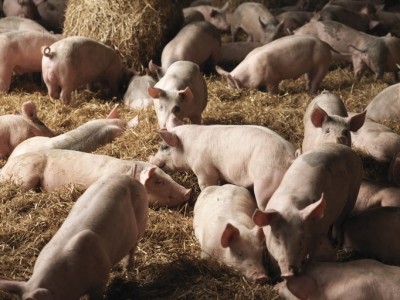Review: Use of vitamins for GI functionality in pigs has potential but is understudied

Very little research and scientific emphasis are devoted to vitamin nutrition and its role in the gut function and health of livestock, said the authors of the paper published in Animal Feed Science and Technology.
The reviewers, which include Charlotte Lauridsen from Aarhus University and Pietro Celi from DSM, discuss how fat-soluble (A, D, E and K) and water-soluble (B-group and C) vitamins may influence gastrointestinal (GI) functionality in general, with a focus on the challenges associated with the early life of pig gut health and disease prevention.
Several nutritional studies have been performed to improve piglet health and resilience to infectious diseases during the lactation and post-weaning periods, and to identify alternatives to the use of antibiotics and antimicrobials as growth promoters.
Moreover, in the last decades, pharmacological levels of zinc oxide (ZnO) and copper have frequently been used as nutritional strategies to prevent post-weaning diarrhea because of their antimicrobial activity. However, the use of ZnO was recently banned by the EU from 2022 because of the risk of promoting antimicrobial resistance (AMR).
“On the basis of the literature review, it is suggested that future research and development of alternative strategies to antibiotics and medicinal ZnO should pay attention to the role of vitamins for GI functionality and health of pigs,” said the authors.
Their main conclusions in this respect are that:
- Vitamins are absorbed in the small intestine, and, in terms of several B-vitamins, in the colon also.
- Dietary vitamin supplementation influences the composition and activity of the intestinal microbiome.
- Vitamins control and prevent excessive oxidative and inflammatory reactions in the gut
The researchers write that vitamin D influences the composition of the gastrointestinal microbiome, and the immunomodulatory role of vitamin D is increasingly recognised, calling for more research on the vitamin D metabolites in relation to the gut functionality in pigs.
"Antioxidant vitamins (primarily vitamins E and C) have in general been shown to play a major role for immunity and health of livestock, but very little research is available regarding the impact of these vitamins, as well as others from the B-complex, in relation to porcine gut health and function. Like vitamin D, vitamin A has a strong influence on the intestinal immune regulation, and deficiencies of these vitamins seem to be linked to impaired intestinal barrier function. B-vitamins mainly have an indirect effect on immune function of the gut and their interaction with bacterial cells and network within the gut."
While vitamin deficiency in humans is still a frequent problem in many countries, vitamin deficiency is generally not a problem in modern intensive pig production, they said.
However, due to the rapid genetic improvement and the intensive production methods, the modern pig is often exposed to challenges that lead to disrupted redox balance and uncontrolled inflammation. Hence, there is an increased demand for control of reactive oxygen species and peroxides, and therefore antioxidant vitamins may be considered a strategy for enhanced enteric immunity and inflammation control, reported the authors.
"Further, in case of limited colostrum intake, vitamin supply may be critical for piglets soon after birth, and a transient lack of vitamin nutrition may also appear post weaning due to the limited feed intake and impaired digestive functions. Since these transition periods are highly important for the gut development and its functionality, these critical periods of the pig life should be emphasised with regard to vitamin nutrition."
While several research papers address the role of Zn and Cu in relation to the gut functionality of the pig, and the use of these trace elements as alternatives to antibiotics, the role of vitamins is much less considered in relation to gut health and function of pigs although they share a lot of similar functions with Zn and Cu, they stressed.
"We therefore suggest future research and development of alternative strategies to antibiotics and medicinal zinc-oxide to emphasise the role of vitamins for gastro-intestinal functionality, health and disease prevention in pigs."
Source: Animal Feed Science and Technology
Title: Role of vitamins for gastro-intestinal functionality and health of pigs
DOI: https://doi.org/10.1016/j.anifeedsci.2021.114823
Authors: C Lauridsen, JJ Matte, M Lessard, P Celi, G Litta















